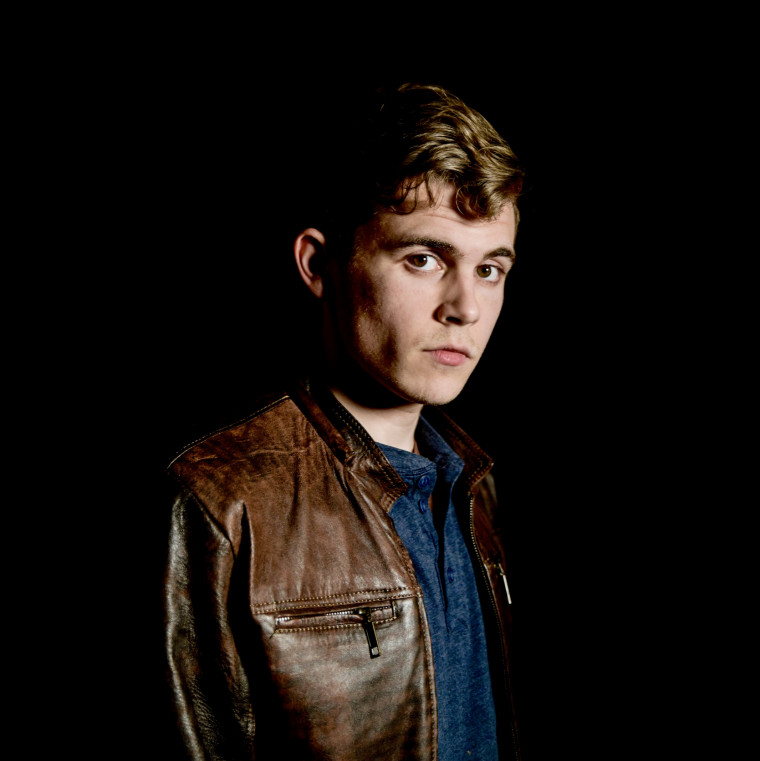Noah Foster-Koth
No single major or department would have taught me all of the skills I ended up using, which is why L&C’s interdisciplinary, liberal arts approach is so valuable.

Pronouns
Degree and Class Year
Hometown
Current City
Major
Extracurriculars
Internship
What three words would you use to describe L&C?
What made you want to come to Lewis & Clark?
I chose Lewis & Clark because I wanted to live in Portland, and I had heard great things about L&C’s English and Hispanic studies departments. All of the positive things I heard turned out to be true!
What have you been doing since graduation?
Most recently, I completed a two-year Fulbright grant in Colombia. Prior to receiving the Fulbright grant, I worked as a contact tracer as part of King County’s COVID-19 response efforts.
How did Lewis & Clark prepare you for your Fulbright grant?
My work with the Fulbright program required me to draw on a variety of skill sets I had developed while I was a student at L&C. In particular, the grant required me to use the essay composition techniques, Spanish language skills, and ESL teaching strategies I learned as an undergrad. No single major or department would have taught me all of the skills I ended up using, which is why L&C’s interdisciplinary, liberal arts approach is so valuable.
What would you say is the most important thing you learned at Lewis & Clark?
Nobody succeeds without the support of other people. I am proud of what I achieved at L&C, but I would not have been able to do it without the guidance and feedback I received from the campus community, especially from my professors.
Why did you major in English and Hispanic studies?
My motivation for studying English shifted slightly over the course of my time at Lewis & Clark. At first, I wanted to tell stories. I was interested in English because I wanted to study the choices authors made when they crafted fictional narratives. Over time, I became more interested in the minute details of the word choices authors make. Why did this author use the word “thrilled” in this sentence? How would the impact of the sentence have changed if the author had used a synonym like “excited?” Detailed analysis like this fascinated me when I was an undergrad, and it still does!
I was drawn to Hispanic studies for similar reasons. I had loved learning Spanish in middle school and high school, and I was eager to study literature in my second language. The Hispanic studies courses I took also taught me a lot about Latin American history, which was helpful when I moved to Colombia after college.
How do you stay connected to Lewis & Clark as an alum?
I stay in touch with my professors and the friends I made on campus. A lot of the people I met at L&C are very dear to me.
What was your favorite class? How did it expand your knowledge?
My favorite class was Professor Rishona Zimring’s honors seminar on the works of Virginia Woolf. Rishona’s course pushed me to engage with some of Woolf’s more challenging essays, and I became a more critical reader and writer as a result.
Where did you find your community on campus?
I found my community through my work with the Mossy Log, L&C’s student newspaper. Working as a section editor for the newspaper introduced me to other students who shared my interest in writing and editing.
Who was your mentor on campus? Why do you consider this person your mentor?
Professors Will Pritchard and Matthieu Raillard were both vital to my success at L&C. Will’s Exploration and Discovery course was one of the very first classes I took as a first year. He created a joyful, engaging classroom environment that made me want to take more courses with him, and he gave me lots of helpful feedback on my writing in the years that followed. Similarly, Matthieu’s lectures on Spanish literature were fascinating to me, and I always felt comfortable talking to him during office hours. I felt valued and supported by both of these professors.
Photo credit: Shadrak Musafiri
More Admissions Stories
Admissions is located in Frank Manor House on the Undergraduate Campus.
MSC: 32
email admissions@lclark.edu
voice 503-768-7040
fax 503-768-7055
Vice President of Admissions and Financial Aid
Eric Staab
Admissions
Lewis & Clark
615 S. Palatine Hill Road MSC 32
Portland OR 97219

